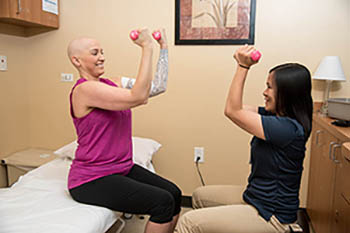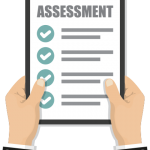The most common treatment for breast cancer includes chemotherapy, surgery, radiotherapy and hormonal therapy. Your treatment plan may include some or all of these, exposing you to some of the following side effects:
Some of the physical symptoms you may experience are:
- Axillary Web Syndrome or cording
- Post-surgical scar tissue tightness
- Frozen shoulder
- Rotator cuff injury
- Postural Dysfunction
Pelvic cancers
Pelvic cancers, cancers involving the structures and organs in your pelvis, continue to be the leading types of cancer in both men and women. Such cancers include but are not limited to: prostate, testicular, uterine, cervical, bladder, & colorectal cancers.
- Prostate cancer accounts for about one-fifth (21%) of all new cancer cases in men.
- Colorectal cancer accounts for 13% of all new cancer cases.
It is common for pelvic cancer survivors to report one or more of the following:
- Pelvic pain
- Sexual dysfunction
- Urinary issues (leaking, frequency, urgency)
- GI Irregularities (constipation, frequency, urgency, fecal incontinence)
- Fatigue
- Weakness
- Difficulties integrating back into work, home, and recreational activities
At RBH Health we want to improve the quality of life of people who are living with or beyond cancer: enabling a return to pre-diagnosis level of function, whether this is returning to ones’ daily tasks or competitive sport.






